- Home >
- Universal Bee Pollen Granules (Premium) - 20g - Universal
Bee Pollen Granules (Premium) - 20g - Universal
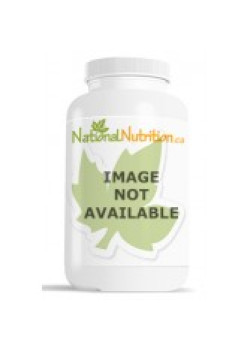
We're sorry, we no longer carry this item.
Check These out
Suggested, Similar, & Related Products:
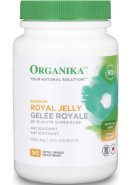
Sale: $41.99
Reg.: $52.49 (Save $10.50)
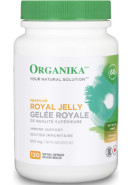
Sale: $33.49
Reg.: $41.99 (Save $8.50)
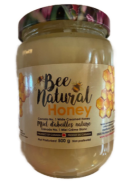
Sale: $7.99
Reg.: $9.99 (Save $2.00)
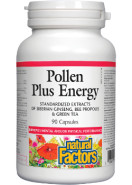
Sale: $10.99
Reg.: $16.99 (Save $6.00)
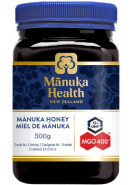
Sale: $87.99
Reg.: $109.98 (Save $21.99)
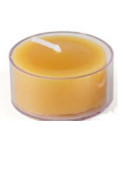
Sale: $1.39
Reg.: $1.89 (Save $0.50)
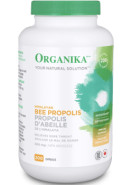
Sale: $29.99
Reg.: $38.99 (Save $9.00)
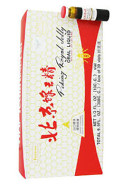
Sale: $15.99
Reg.: $19.99 (Save $4.00)
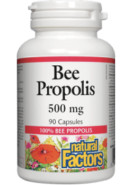
Sale: $17.99
Reg.: $19.99 (Save $2.00)
Or, Shop our Latest Deals:
Shop Now >Format
 Granules
Granules
200g
Dosage
1 teaspoon twice daily. you may gradually work up to 3 teaspoons daily.
Important Information
Do not use if you have an allergy to bee products.
- Used to treat seasonal allergies & colds
- Supports healthy immune system
- 100% bee pollen
- Provides energy
- Supports production of brain chemicals
Related Videos
No Related VideosRelated Articles
Articles by a naturopathic doctor.
Universal provides antioxidant packed food supplements: Goji Berries, Organic Green Tea, Korean Ginseng Tea, Panax Ginseng Extractum, Peking Royal Jelly and many more. Universal supplements support overall health and skin health naturally by providing quality health food supplements that are rich in antioxidants.
Bee Pollen
Bee pollen is a powder that is collected from flowering plants by bees. It is a nutritious substance, containing significant amounts of protein, B vitamins, vitamin C, carotene, minerals, essential fatty acids and plant sterols. For individuals who lack energy and suffer from depression, bee pollen provides B vitamins, calcium, magnesium and iron. These vitamins and minerals support the adrenal gland (gives you the get-up-and-go energy), brain (supports the production of brain chemicals) and blood (boosts the oxygen carrying capacity of the blood).
Bee pollen contains plant sterols and vitamin C, both of which support the immune system. Plus bee pollen is an antimicrobial agent. It is used to treat seasonal allergies and colds and flus. People with intestinal diseases or cancer may find bee pollen helpful because of its easy to use nutrients and immune regulating properties.
Bee pollen can be purchased fresh, freeze dried or encapsulated. Fresh bee pollen should be in an airtight container and should not clump together. Bee pollen is often found in combination with other bee products, like royal jelly and propolis, or in formulas for immune boosting or allergies. If you are using bee pollen for allergies local pollen is the most effective.
Do not use bee pollen if you are allergic to bees. To ensure that you do not react to bee pollen take a small amount first and watch for signs of any reaction. They can include rash, hives, wheezing and swelling.
QUICK FACTS
Collected from bees when they return to the hive. Pollen from flowers and trees.
Works against: colds and flus, infections, allergies, fatigue, depression, intestinal conditions.
Energy
Picture your body as a machine. In order to get your body to work your body needs fuel or food. It then transports that fuel to each cell. Inside each cell are little engines called mitochondria. They take in the fuel and process it to release energy.
The energy is used to power all cell processes and is the ultimate source of your body's energy. Another body system that impacts on energy is the glandular system. Picture it as the fuel injector of your body. It regulates what fuel gets into the body, which cells get the fuel and in what amounts. The blood cells are also a critical component of the body's energy system. They carry oxygen, a catalyst for many cell activities, around the body.
Lack of energy can be attributed to many causes. All of these causes must negatively impact on our body's ability to get fuel into the body, inhibit the mitochondria's ability to turn it into energy or alter the functioning of the hormonal and blood system. Some of these factors are:
POOR NUTRITION
Toxin accumulation from medications, environmental sources or food and water.
Lack of sleep
Stress and emotional issues
Lack of exercise
Poor nutrition impacts on energy in obvious ways. If your body does not have enough raw materials to provide for it's functioning than you will feel fatigued. The standard North American diet is deficient in vitamins, minerals and essential fatty acids. It is high in saturated fat, refined carbohydrates and chemical additives and preservatives. These substances not only do not give your body usable energy, but they also inhibit the use of good quality food by depleting enzymes and hormones necessary for energy conversion. The body must also deal with the toxic by-products of foods like bleached flour and sugar, artificial sweeteners and flavours and trans-fatty acids. Energy expenditure is funnelled towards detoxification of these substances instead of growth, cell replication and metabolism.
The type of food that you eat also affects energy by providing short, intense bursts of fuel for the cells or sustained, steady fuel release. Simple sugars or carbohydrates are quickly absorbed by the body and go into the bloodstream for immediate use for cells. This accounts for the energy burst you feel after eating a sugary snack. It also accounts for the fatigue that comes on a few minutes after the sugar is used up. These fluctuations in blood sugar are hard on the body because it stresses the system. Hormones are rapidly used up when sugar saturates the bloodstream but when it comes time to replenish the supply the body has low amounts of energy to use for this purpose. Its like making the body do multiple sprints instead of letting it lope along at a comfortable rate. The brain uses only the sugar, glucose, for energy. At some time or another everyone has felt the foggy feeling in the head caused by low blood sugar. This is proof that fluctuating blood sugar is not conducive to optimal brain functioning.
Blood cell production and function depends on the intake of protein, vitamins, including B vitamins, and minerals, including iron. Without hemoglobin, the red blood cells are unable to carry oxygen. As a result cells become starved of oxygen and cannot produce energy.
Besides toxic by-products in our food, the body must also deal with the toxins taken in from our environment and toxins within medications. The body has effective ways of dealing with toxins and waste products using the liver, intestines, kidneys, lungs and skin. Environmental toxins can cause these pathways to become blocked. The back up of waste material makes it harder for the rest of the body to function normally and ultimately leads to lack of energy. Since the environment in which we live makes it impossible for us to maintain a pristine lifestyle all of us can suffer from lack of energy due to the build-up of environmental toxins.
The only way for medication to have a therapeutic effect is if it has a significant half-life in the body. Half-life means the length of time it takes for the body to eliminate half of the drug. Overwhelming the body's detoxifying ability, with medications, has a negative effect on the organs of detoxification. It prevents the system from dealing with the accumulation of normal metabolic by-products, wears out the organs and depletes nutrients that are needed for the detoxification process.
- Reviews
- POST A NEW REVIEW
Tell everyone what you think about this item!















